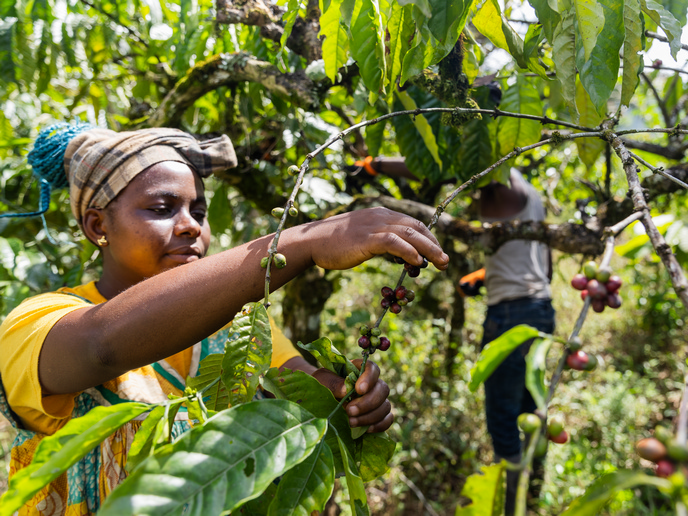Innovative approaches to improving nutrition in Africa
Malnutrition is prevalent across many parts of Africa, along with rising cases of obesity. Prevention involves an adequate maternal diet, as well as nutritious, diverse, safe, affordable and tasty foods in early childhood and beyond. The EU-funded FOODLAND(opens in new window) project sought to support this objective by developing and validating scalable and sustainable innovations to support local food systems, while strengthening agrobiodiversity. “We wanted to address three main needs affecting African food systems,” explains FOODLAND coordinator Marco Setti from the University of Bologna(opens in new window) in Italy. “The first is organisational, meaning, the inadequate coordination among food operators and scarce market orientation. The second is technological – poor performances of local agri-food supply chains. And finally, we wanted to address nutritional needs, i.e. unbalanced and unhealthy diets.”
Food Hub networks to drive change
The FOODLAND project addressed the organisational need through the creation of a network of 14 Food Hubs(opens in new window). These are local centres of innovation operating in the rural or peri-urban areas of six countries in Africa (Ethiopia, Kenya, Morocco, Tanzania, Tunisia and Uganda). At these Hubs, local smallholder farmers, researchers, food processors and NGOs regularly meet to jointly design and deploy innovations, participate in training sessions and share resources and equipment. “In parallel, background research was carried out to map the local population’s contextual conditions and food-related preferences and behaviours,” adds Setti. “This involved conducting surveys and behavioural tests with representative samples – 10 000 rural and urban consumers as well as 6 500 farmers – to better understand decision-making processes and possibilities for change.”
Technological innovation to fulfil nutritional needs
In terms of technological innovation and new foods addressing nutritional needs, the project focused on ways of improving local food supply chains for cereals, vegetables, fruits and fish. Some 49 open prototypes were trialled after in-lab and in-field testing, with the involvement of 3 000 local innovators. “These included 23 validated innovations such as precision irrigation, smart storage, integrated aquaculture and bio-based packaging,” says Setti. “Tangible impacts for local smallholder farmers and SMEs were measured through specific performance indicators, such as reduced input use and losses, and increased yields.” The project also resulted in the creation of 26 new food raw materials, ingredients and products such as composite flours, dried products and oils. Taken together, these innovations will enable local producers to strengthen agrobiodiversity, increase their competitiveness and enrich the dietary diversity of urban and rural consumers.
Promoting benefits of nutritious food
A large number of distinctive nutritional recommendations(opens in new window) were also disseminated through local campaigns aimed at both rural and urban areas in the six African countries. “The benefits of local varieties/species, and the nutritional and functional properties of the new enriched foods were also promoted,” adds Setti. Special attention was paid to vulnerable groups such as women and children, with concrete and clear advice along with examples of healthy and balanced diets. The project’s research products have since been published or made publicly accessible via the Zenodo FoodLAND sub-community(opens in new window) as part of the larger EU Open Research Repository(opens in new window). Datasets, protocols and practice abstracts are also available on the FoodLAND Open Platform(opens in new window).







